
Arquivo para July, 2023
Conflict rages and hope for peace
The combat front extends across the entire 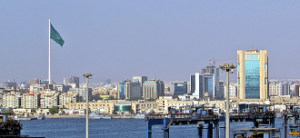 eastern region of Ukraine, which claims advances, while Russia is again bombing the ports of grain stocks in Ukraine, which threatens the food security of several countries.
eastern region of Ukraine, which claims advances, while Russia is again bombing the ports of grain stocks in Ukraine, which threatens the food security of several countries.
Putin promises to deliver grain “for free” to several African countries, but South Africa warns it is not enough, and Niger has had a Russian-backed coup d’état, and President Hohamed Bazoum is jailed, while General Abdourahamane Tchiani has taken over. the country, the European EU cut all support given to the country, with France having interests in the country’s business.
The Wagner group of mercenaries from Russia operated in the region, having influenced the positions of Mali and currently influence Burkina Faso, the group is currently in Belarus and raises fears of Poland that it could cause a conflict in the region, expanding the war zone and reaching NATO’s “weak points”.
Mali and Burkina Faso are among the poorest countries in the world and dependent on foreign aid, both for food security and military, they are predominantly agricultural countries.
Hope comes from Saudi Arabia, which will host a meeting in the city of Jeddah to address the situation of the war in Ukraine, in addition to Brazil and India, which are members of the Brics, the United Kingdom, Poland and South Africa are among countries that confirmed their attendance, Egypt, Indonesia, Mexico, Chile and Zambia are among the guests, US Security Secretary Jake Sullivan is expected to attend the meeting and Putin will not attend.
The meeting is important because there were accusations to the OPEC+ group, on October 22, that oil producing countries are supporting Russia, however the bloc, along with other countries invited to the meeting, maintains a firm position of expanding peace talks.
The meeting to attempt a peace agreement in Ukraine will take place on the 6th and 7th of August, while the Brics will have a meeting on the 22nd to the 24th of August and China proposes the inclusion of Saudi Arabia and Indonesia in the group, while Brazil and India resist the idea, Putin should not participate.
Jeddah (or Giddah) (photo) is located on the edge of the Red Sea, is a UNESCO World Heritage Site, has 23 sister cities, including Rio de Janeiro in Brazil, Odessa in Ukraine, Kazan and Saint Petersburg in Russia, and its main twinning (another sister city concept) is with Miami of the US.
The Final Semitic-Jewish Exodus and the Full Life
All along the way, the Semitic-Jewish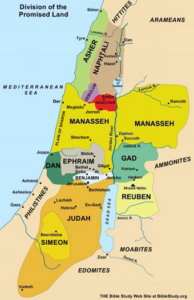 understanding is linked to the ownership of a certain land, and even the imperial struggles of our time do not reflect anything else than the attempt to colonize peoples and enslave them, that is, we have evolved in the technology used for the war, but not with the intention of perpetuating the power and acquiring goods of peoples and nations.
understanding is linked to the ownership of a certain land, and even the imperial struggles of our time do not reflect anything else than the attempt to colonize peoples and enslave them, that is, we have evolved in the technology used for the war, but not with the intention of perpetuating the power and acquiring goods of peoples and nations.
At the end of the Jewish-Semitic exodus, Moses sends Joshua and Caleb and 10 chosen men, one from each tribe, to spy out the land of Canaan to find out the conditions in the region, but he himself does not get there and dies beforehand.
These spies who go there find a good and beautiful land, however there were “giants” in it and the people were powerful, despite all 40 years in the desert, many Hebrews wondered if it was not better to have returned and thought that God had abandoned them .
However, the contrary report of Joshua and Caleb the land was very good and if the Lord had promised the possession of Israel he had to proceed until he took possession and despite many struggles they got there, then came the judges according to the biblical narrative, but the people asked for kings “like other peoples” and then came Saul.
Understanding this time, in addition to interpreting the inevitable influence of the Egyptians and the messianic spirit of the Hebrew people, must take into account that farmers and shepherds needed land, and even though the divine message was clear, theophanies instituted alliances and this also meant a behavior of justice and fraternity, they were still understood as being “a chosen people” this would not apply to other peoples.
Even a millennium later, as we said this period of the beginning of the Egyptian decadence is around the year 931 BC, the time that Jesus is born this needs to be corrected and the didactic difficulty of teaching the people the true teachings, and Jesus only brings a “new ” commandment (does not mean that the 10 of the covenant were wrong) “that you love one another” (John 13:24) and I want mercy and not sacrifice (Matthew 9:13).
Even so, the disciples were slow to understand, not understanding the sacrifice of Jesus on the cross, and the refusal of this sacrifice implied even greater throughout history: wars, exile, pests and famine, but the spirit of domination and colonization of peoples remains.
When explaining to his contemporaries in parables Jesus says how the divine kingdom is like someone who finds a treasure (Mt 13,46): “when he finds a pearl of great price, he goes, sells all his possessions and buys that pearl” and this should mean a greater good not only in human value, but in eternal and definitive values.
The Ipuwer hover found in Egypt at the beginning of its decadence says that the girls “stayed looking at themselves in the mirror for hours” and that the women who used to keep things in boxes “now wanted elaborate furniture” to store their things.
What are our pearls and our values that we want for a lifetime?
Way, theophany and covenant
The historical narrative, the one made by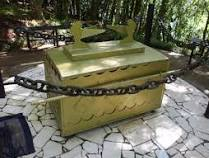 official historiography, narrates journalistic facts as they happen, sees the path only as a theory and method, the divine manifestation as a historical evolution, and the alliance with God as a religious illusion.
official historiography, narrates journalistic facts as they happen, sees the path only as a theory and method, the divine manifestation as a historical evolution, and the alliance with God as a religious illusion.
The evolution and fall of civilization prior to Semitic, the fact is that after the son of Noah (?) Without a civilization, it emerged and evolved in the ancient Mesopotamia of the Chaldeans, from there Abram left until he arrived and had the son Isaac promised by God Isaac and with him he made an alliance, and changed his name to Abraham, because he would have as many children as the stars in the sky (Genesis 17,1-4) and in fact three major religions invoke him as “father of faith”.
In history they will be close to the great Egyptian civilization, and they will leave there at the beginning of its decadence.
Thus, this cycle will be repeated with Moses, due to famine the Hebrews migrate to Egypt in the time of the 12 tribes of Israel (Jacob, son of Isaac, who took the place of Esau, had the fight with the angel), Joseph goes to Egypt and then the Hebrews begin to live in slavery, there Moses receives a new mission to leave for Canaan, and there will also be the divine manifestation on Sinai and the new covenant (Exodus 19:11): “and to be ready for the third day , for on that day the Lord will come down before all the people on Mount Sinai.”
Thus, a new Theophany and a new alliance take place with Moses receiving the tablets of the Law, almost arriving in Canaan and seeing it from afar, Moses dies and Joshua receives the mission to lead the people to the promised land, in the ark of the alliance (illustrative photo, the ark was lost) will be placed a vessel with manna mysterious food that the people ate in the desert, Aaron’s staff and the tablet of the 10 commandments).
From that moment until the birth of Jesus, the law and the prophets are valid, for Christians the new covenant is made with the proclamation of the Gospel (the good news) and the new covenant is God in the midst of his people and his own guide.
So today the ark is no longer needed, there was already a manifestation of the prophet Jeremiah (Jeremiah 3:16) even before the birth of the Messiah.
The Kingdoms of Israel and Judah and History
As we have pointed out, it is a period of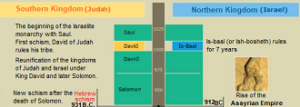 historical disintegration, and the need to group the Hebrews and also bring the divine message is explained by some scholars as the creation of this historical figure Joshua, who would be a name modified by Moses to Hosea (in Hebrew Yehoshua), as narrated, among others, by the biblical historian Robert Coote (2010).
historical disintegration, and the need to group the Hebrews and also bring the divine message is explained by some scholars as the creation of this historical figure Joshua, who would be a name modified by Moses to Hosea (in Hebrew Yehoshua), as narrated, among others, by the biblical historian Robert Coote (2010).
Joshua was the son of Nun, from the tribe of Ephraim, his book is the first roll of the “Books of the Prophets” according to the Judeo-Christian tradition, and he will be the leader of the battle of the fortress city of Jericho, which became eternalized as the famous “Siege of Jericho”.
However, the arrival in Canaan, after sending “spies” to recognize the land of Canaan, the promised land will be governed by judges in an attempt to maintain the religious and political order of the people that was in the process of fragmentation, among the main judges were Jephthah, Gideon, Samson and Samuel.
When Samuel got old, the sons “became greedy, accepted bribes and perverted justice”(Samuel, 8:3), something similar to the present day, the authorities went to Samuel and asked for kings like other peoples.
Samuel in a meeting with Saul who went out to look for his donkeys of the father Kish, who was a man of possessions from the tribe of Benjamin, there Samuel has a divine vision that that was the man chosen by God.
Saul should receive the prophet’s orders, but he reveals himself as having an immature and pagan faith, he wanted to offer sacrifices to God to obtain quick help for his interests, something similar to many Christians today, and despite many victories over the enemies of Israel, is deposed, and in his place is appointed David, who had fought the Philistine giant Goliath.
The division of the kingdom of Israel in the period that David ruled for a long time was only in the biblical narrative, but in 2015 the name Is-bosheth (or Is-baal) was discovered in an inscription by Israeli archaeologists (JNS.org, 2015).
For many centuries, the name Is-baal was found exclusively in the Bible. In 2015, however, Israeli archaeologists revealed to have discovered an inscription with this name on an ancient artifact for the first time “Eshbaal Ben Beda”.
Out of envy of David, Saul will try to kill him twice and David, when he has the opportunity, does not do it and forgives him, and Saul ends up committing suicide.
From David’s relationship with Bathsheba, wife of Uris that David sends to the front of the battle to die, Solomon will be born, who will govern his unified people with wisdom, but later approximately in the year 931 BC. a new Hebrew schism will occur.
This period of history closely approximates the period of the rise of the Assyrian Empire in 912 BC, in 612 BC. begins the decline of this empire and rise of the Persian Empire (550 BC).
JNS.org. Jewish and Israel news (june 16 of 2015). «King David-era inscription pieced together from broken jug»,
Exodus: historical and divine realities
The history of Ancient Egypt is generally divided into the Old Kingdom, from the great pyramids of the pharaohs Cheops, Chephren and Mycerinus, built near Memphis, the capital of Egypt at the time, then the Middle Kingdom (2100 BC to 1580 BC), the biblical character is born at the end of this period, and the New Kingdom (1580 BC to 715 BC), when they begin to face invasions until they are defeated by the Assyrians (6 70 BC).
divided into the Old Kingdom, from the great pyramids of the pharaohs Cheops, Chephren and Mycerinus, built near Memphis, the capital of Egypt at the time, then the Middle Kingdom (2100 BC to 1580 BC), the biblical character is born at the end of this period, and the New Kingdom (1580 BC to 715 BC), when they begin to face invasions until they are defeated by the Assyrians (6 70 BC).
In the biblical narrative one can divide the: first (1,1-15,21): coexistence in Egypt from Joseph to Moses; second (15.22-18.27): theophany and journey in the desert to Sinai; third (19-40): option for the divine proposal (Moses is called to lead the Exodus) and the covenant on Sinai.
It is interesting to observe the sequence that is repeated in the period of Abraham: leaving Ur in Mesopotamia, walking to Canaan, the alliance with Abraham (Gen 17:15-17) and the call to God in the offering of his son Isaac and the formation of the 12 tribes of Israel and the sale of Joseph to the Egyptians.
It is important to analyze the 10 plagues in Egypt in this biblical-historical context, a famous papyrus found in 1909 of an Egyptian called Ipuwer (or Ipuur which according to the scholar A. H. Gardiner was a typical name of the period 1850 BC -1450 BC), written in the form of a poem complains that women now have “furniture”, and girls have “mirrors” while the rich man lives in rags.
The papyrus is important for its connection with the biblical narrative, mentioning slaves fleeing Egypt and rivers of blood, but scholars speak of the Minoan eruption, which occurred during this period on the island of Santorini, near the island of Crete, which devastated a Minoan settlement.
The waves produced may have reached Egypt at the time, but the effect on the Nile delta is questioned by most fishermen, but the Ipuwer papyrus has a narrative close to the biblical one regarding the events in Egypt and, most importantly, narrates the beginning of the fall of the Empire through customs, a period that history calls the New Empire.
The 10 plagues of Egypt in the biblical narrative were: the river of blood, infestation of frogs, lice and flies, plague in cattle, ulcers in people, hailstones, infestation of locusts, darkness and the death of the firstborn of families.
As described in previous posts, the people of Israel guided by Moses will cross the desert, reach Canaan after four wars and stay there until a new exile in Babylon.
Egypt after the invasion of the Assyrians mentioned above, later they were dominated by the Persians in 525 BC. and by Alexander the Great in 322 BC, finally by the Romans in 30 BC.
Whether for purely historical reasons, social decay or divine intervention, empires fall from the oppression and tyranny they exercise, but there is a cycle of suffering.
Food security and escalation of war
The end of the grain agreement prevents  shipments of grains produced in Ukraine, in particular: wheat, corn and barley, with this wheat has already risen 8.5% on international exchanges and corn 3.5%, as this bombing in Odessa which is still a free port of Ukraine, which is at the western tip of Ukraine on the Black Sea.
shipments of grains produced in Ukraine, in particular: wheat, corn and barley, with this wheat has already risen 8.5% on international exchanges and corn 3.5%, as this bombing in Odessa which is still a free port of Ukraine, which is at the western tip of Ukraine on the Black Sea.
Ukraine has received constant attacks on its ports and warehouses in Odessa, in response it carries out bombings on weapons and supply warehouses in Crimea and the Kersh bridge in the strait of the same name that connects Crimea to Russia was hit again. (in the photo the cathedral of Odessa hit this Sunday)
On the northern front there are no major advances in the counteroffensive and Russian propaganda says that its forces have advanced, while the Ukrainian forces admit only a small and slow advance, far below expectations, while waiting for more weapons and ammunition.
The number of Russian soldiers and forces has increased, but it is in the air battle that it has the greatest power, and the end result is that on all fronts the war escalates.
Hungary, Austria and this week Bulgaria have sent weapons to Ukraine and Russia’s tension with Poland is at an all-time high through Belarus, which shares a border with Poland.
The Brics held their meeting without the presence of Russia, which is a relief for the group, but this does not mean a break with the group, China is increasingly a Russian ally, Brazil and South Africa are hesitating on the subject, while India tries to reinforce its calls for peace.
A loss in world grain distribution will hit Latin America and much of Africa hard, whose leaders have also unsuccessfully tried to put pressure on Putin.
Russia and China have returned to military exercises in the Sea of Japan, as a result of which South Korea and Japan are becoming increasingly close to Western forces and NATO.
The right question about evil
There is no doubt that there is cruelty, evil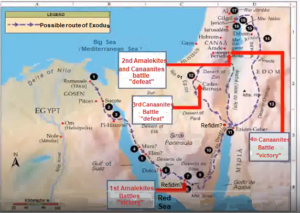 and indifference which is the great contemporary evil, but it is neither Manichaeism nor pure evil incarnate.
and indifference which is the great contemporary evil, but it is neither Manichaeism nor pure evil incarnate.
Always at all times agreements and wars were tried, often just for convenience or even war tactics, we have already posted about bad post-war agreements, such as Germany that came out humiliated from the first world war and we learned little from history.
We are making the route of the Jewish-Sumerian people until they get back to Canaan, where they left due to hunger to go to Egypt, before leaving Moses receives the divine message to address the Pharaoh, he goes with his brother Aaron, but what is the point knowing that the Pharaoh is merciless with the Israelite people? It’s just that the true divine message is always good seed for all peoples, that’s why the parable of the good seed, which should be the name of the parable of the tares and wheat.
Even going to talk to the pharaoh, the Israelites will be pursued, and then they will have to fight 4 battles in the flight through the desert, the battle of Rephidim where the marauding Amalekites win, the second again against Amalekites and Canaanites (so the location of Rephidim may be further north), the third a defeat against Canaanites and the 4th. the final victory.
See the reading (Mt 13,26,27): “When the wheat grew and the ears began to form, the weeds also appeared. The employees went looking for the owner and said to him, ‘ Lord, didn’t you sow good seed in your field? So where did the weeds come from?’ and the manager says not to uproot the weeds because it might uproot the wheat with it.
The divine seed is always good, but tares will always grow among the wheat and only from there can we correctly interpret the seed that falls on bad soil and among thorns and does not flower or bear fruit.
There is always hope and always a possibility for peace and harmony among nations and peoples.
The people get tired and don’t believe anymore
The return to the land of the tribes of Israel will not be easy, but it is to escape the oppression of Egypt, a nation that will face the famous “plagues of Egypt”, which are biblical, but also historical: the plague, war and decay and the famine, common episodes in the declines of empires.
will not be easy, but it is to escape the oppression of Egypt, a nation that will face the famous “plagues of Egypt”, which are biblical, but also historical: the plague, war and decay and the famine, common episodes in the declines of empires.
The passage from the Exodus narrative reads (Ex 3:17): “And I decided to bring you out of the oppression of Egypt and to lead you into the land of the Canaanites, the Hittites, the Amorites, the Perizzites, the Hivites, and the Jebusites, to one land flowing with milk and honey”, we see on the map what Canaan was like at the time.
The long journey and the scarcity of food, they ate a fallen food that they called manna and there was also a lack of water, in a place called Massa and Meriba, where the people begin to argue and “try the Lord” questioning: Is the Lord in the among us or not?
That’s when Moses will go looking for water in a prophetic inspiration.
There Moses manages to “smite the rock”, somehow shatters a rock on the mountain and finds water, but then comes the battle with the marauding Amalekites (Exodus 17:1-16), although literature indicates Horeb’s proximity to the south, the site was probably farther north, because the site of the Rephidim Battle (meaning resting place) must be farther north, at the head of the Red Sea, near Mount Sinai (Exodus 15:17-22).
During battle Moses must keep his staff raised. However, with his advanced age, his arm starts to bend, and it is necessary to support his arm so that the Israelites win the battle.
So many times these wars happened, history says that the first of them was the battle between Sumerians and Umma (around 2700 BC), the wars of Egypt, then came the Persians and the famous Punic (Greek) wars, the Roman empire , medieval battles, the Hundred Years’ War and the two world wars, the minor wars of empires and colonies.
If we learned not only from written histories, but also from worldviews (those that established the cycles: plague, war and famine) and really believed in a possibility of universal peace, not the pax Romana which is submission to an empire, respecting cultures and peoples of different races and creeds, a true civilizing process could be built.
The idea that those who want peace prepare for war is not humanitarian and still haunts the minds of men and leaders with a thirst for power
The Burning Bush Episode
The story of the departure of the Israeli people from Egypt begins with an extraordinary event in which Moses leads Jethro’s flock, I am father-in-law and priest of Midian (history records him as a Druze) and near Mount Horeb he sees a burning bush that does not consumes it (Ex 3,3): “I am going to approach this extraordinary sight, to see why the bush does not consume”.
from Egypt begins with an extraordinary event in which Moses leads Jethro’s flock, I am father-in-law and priest of Midian (history records him as a Druze) and near Mount Horeb he sees a burning bush that does not consumes it (Ex 3,3): “I am going to approach this extraordinary sight, to see why the bush does not consume”.
There he receives the mission to remove his people from Egypt and the episode of the Escape from Egypt will begin, just as Abraham had withdrawn from an unlikely path from Ur of the Chaldeans, Moses will also make a route going through the region of Midian, in the biblical narrative this people it is also of Abrahamic origin since Abraham after Sarah’s death had Midian or Madian with his wife Keturah.
The historical record of the plagues of Egypt that preceded the flight can be found in the “Ipuwer papyrus” discovered in Egypt at the beginning of the last century, and taken to the Leiden museum in Holland, it was deciphered by A. H. Gardiner, and was found near the city of Avaris.
The Israelites at the beginning of the persecution are established in the warehouses of Rameses and Pitom, then they begin to migrate to Sucode, and from there they begin the flight to the Sinai desert, it will be in Horeb where Moses saw the burning bush that will receive the tablet of the law, the Ten commandments.
Jetro’s connection with the Midianites, he was a priest, is fundamental in the logistical support for the fleeing caravan, and this is probably the reason that they took a longer route, and we see from the map that it is likely that at the end of the persecution there will be a new one. miraculous episode that is the passage to be dried by the Sea.
The following story of the people will speak of many connections with the Moabites (Ruth was a Moabite and Lot would have given rise to the people through incest with his daughter) they lived in the desert so the road to Canaan will be even longer, the Egyptians still dominated the region, what was to be accomplished in days says the narrative that took 40 years.
In the history of that region, troglodytes lived, not in the folkloric sense that we know, but the fact that they lived in caves and houses dug in the mountains, as was also characteristic of the north in the well-known Cappadocia, region of so many mystics of antiquity.
Persecution and emigration always affected nations in wars.
Joseph of Egypt and Moises: the Noosphere
Joseph of Egypt before the Exodus of the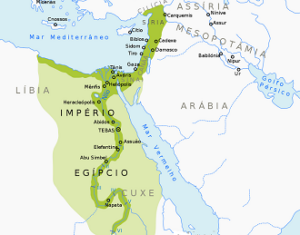 Israelites in Egypt, had two dreams the first that the brothers identified as “beams” who bowed to him, and the second that the Moon and eleven stelae (symbolizing the 11 tribes) bowed to him, and the brothers and even Israel do not believe in this, this cosmogony is present in the three great Abrahamic monotheistic religions.
Israelites in Egypt, had two dreams the first that the brothers identified as “beams” who bowed to him, and the second that the Moon and eleven stelae (symbolizing the 11 tribes) bowed to him, and the brothers and even Israel do not believe in this, this cosmogony is present in the three great Abrahamic monotheistic religions.
It will be Joseph in Egypt who will feed them in the time of the lean cows (the Pharaoh’s dream that Joseph unravels), there are no precise reports, however, the most likely is that this has taken place in the time of Pharaoh Sheshi I, and history records a period of famine and scarcity in the region.
But with the death of Joseph, the biblical narrative, now of the exodus says that the successor Pharaoh did not know Joseph and begins to fear, ordering that heavy work be established for the Hebrews until he orders to throw all the newborns in the Nile river, and then begins the saga of Moses.
Moses was born of the tribe of the Levites, who were priests and had no territory in Israel, he was the grandchild of Coate, son of Amram, with Jochebed his aunt and sister of Coate, due to the death of the newborns, he is raised in secret and after 3 months, when it is no longer possible to hide it, it is thrown into a basket prepared with tar and bitumen and thrown into the Nile, her older sister is on the lookout and sees that princess Henutmire, together with Yunet, when they hear a child crying the rescue, they know it’s a Hebrew child, but they decide to raise him.
It will be through Moses now, that the Hebrew people will return to Israel, in the biblical narrative it is when Moses was near Mount Horeb that he sees a burning bush (but it does not burn) and dresses in a veil because he cannot look in the face for her, who receives the mission to lead her people to Israel.
This period is called the Middle Kingdom, from 2100 BC. until 1580 BC, when Palestine and Nubia were conquered and where they found precious metals that stabilized the economy.
The Egyptians were polytheistic, and Moses marries Zipora (Exodus 2:21) who was a daughter of Jethro, a Druze priest, who claimed to believe in a single god, but for the Druze it is a type of universal mind, something close to the noosphere de Chardin, but reduced to “mind”.
This is followed in the biblical narrative by the plagues of Egypt and after many years, the Hebrews walk dry through the Red Sea.

